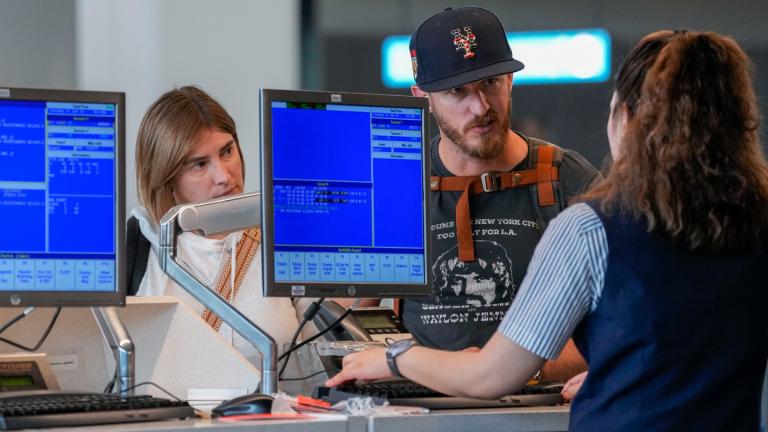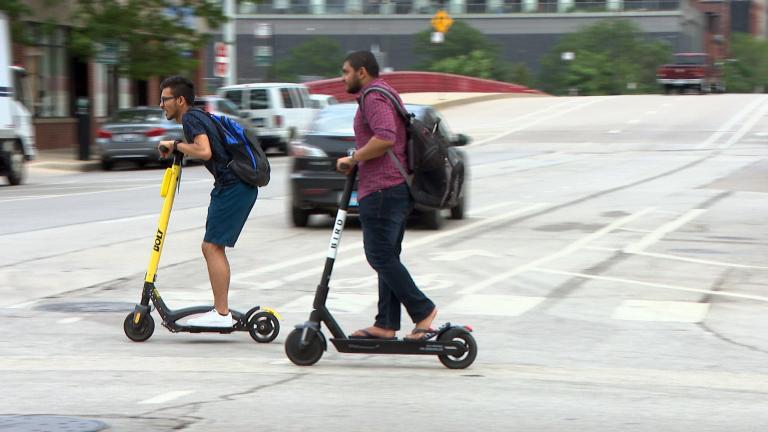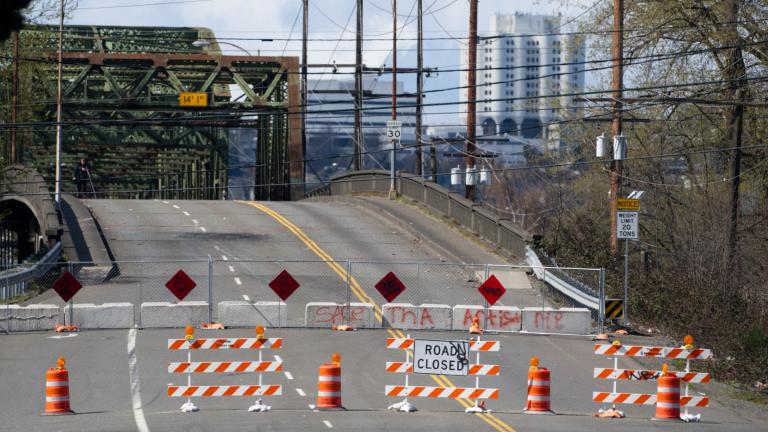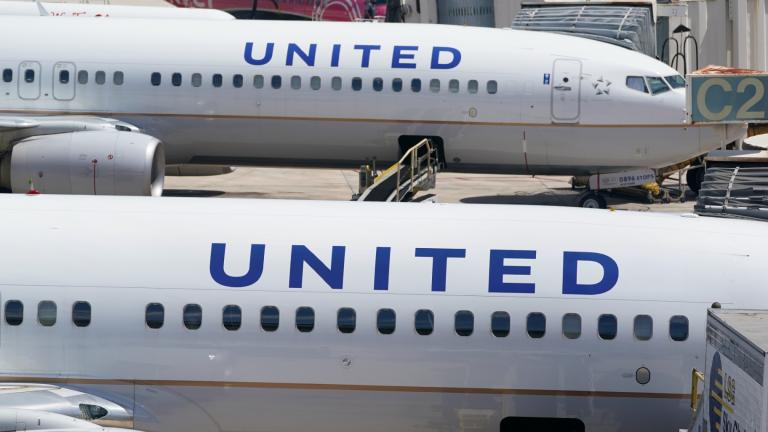The Canadian government is using a national emergency act to quell ongoing protests over COVID-19 measures.
Many of the country’s recent occupations and blockades have been driven by truck drivers angry over a vaccination mandate. A blockade on the Ambassador Bridge between Ontario and Detroit has caused the latest supply chain headache for automakers.
Meanwhile in the U.S., the Supreme Court move striking down a federal vaccine mandate for most large businesses means drivers don’t face a vaccine requirement. While the U.S. isn’t experiencing the same upheaval as Canada, trucking advocates say the industry still faces huge challenges, many of which predate the pandemic.
“We survey our members every month on the driver situation,” said Matt Hart, executive director of the Illinois Trucking Association. “Except for the first couple months of the pandemic when many of our manufacturers were shut down, we’ve consistently heard over 90% of our trucking companies have a truck driver shortage.”
The Association’s national affiliate was among the groups challenging the Biden Administration’s vaccine requirement. Hart says a significant portion of drivers said they’d look for work in another field should it go into effect – and he says the COVID risk is low since drivers usually have minimal contact with the public.
“It’s usually at a shipper or a receiver or a retail outlet. They’re not spending extended periods of time with folks. I think the proof is that we have been safely delivering the goods that Americans need throughout the pandemic,” Hart said.
While the shortage of drivers has been acute for the better of the last two years, Hart says it wasn’t just driven by COVID-19. With older drivers retiring and fewer younger drivers getting into the industry, Hart wants to recruit more women, who make up a very small share of drivers currently, and more immigrants to the U.S, who he says can use driving as a source of stable income and potentially to start a business.
He’s also hopeful a pilot program in the recent federal infrastructure law will increase the number of young people coming on board. That program would allow a select number of 18, 19, and 20 year old truck drivers to cross state lines, younger than the current requirement of 21 for all interstate commercial drivers.
“In Illinois, you can get a driver’s license to drive a truck at 18 years old, and you can drive from Chicago to East St. Louis, but you cannot drive from East St. Louis into St. Louis because of our federal regulations,” Hart said. “It’s our hope this (pilot program) will lead to a safety standard where we can safely bring in younger people to be driving commercial motor vehicles so that we can attract 18, 19, and 20 year olds into this industry.”








